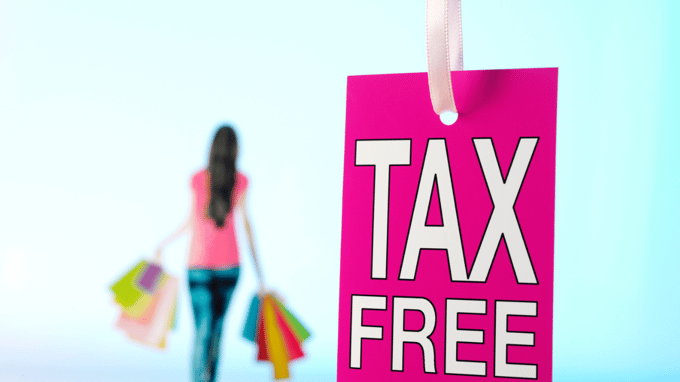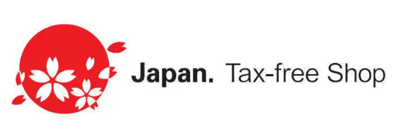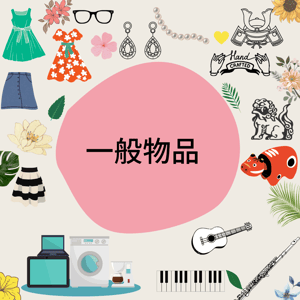Discover the essentials and key considerations for tax-free shopping in Japan, the ultimate shopping paradise!
This blog post provides answers to common questions regarding tax-free shopping in Japan, aiming to offer you helpful insights.


・What kind of stores in Japan offer tax-free shopping?
Tax-free shops in Japan include authorized airport duty-free stores, electrical appliance stores, department stores, and drugstores.
Please note that not every store is tax-free. For those that do, a "Japan.Tax-Free Shop" sign/logo will be posted inside or outside the store. (Check the picture below.)

・How does tax-free shopping work in Japan?
In contrast to other countries where tax-free procedures are typically conducted at the airport, Japan offers a unique experience where tax-free procedures can be completed directly at the place of purchase. There are two common methods for tax-free shopping in Japan.
One type of store is independent stores such as drugstores, clothing stores, and electronic appliance stores with a "Tax-Free Shop" sticker. Some of these stores have dedicated tax-free cashiers where you can pay without tax.
The other type of tax refund can be done at the unified tax-free counters in shopping centers, department stores, and outlets. Visitors can make purchases at the regular tax-inclusive price and then proceed to the tax-free counter to complete the refund process. Usually, the tax refund will be returned to tourists in the form of cash in Japanese yen.
・When are you not eligible for tax-free shopping?
- If you have used the automated immigration gates at the airport, without receiving an entry stamp on your passport
- If you have stayed in Japan for more than 6 months
- If you are working in Japan
- If you do not meet the purchase amount requirements or other conditions
The tax-free system in Japan is designed for non-residents, such as foreign tourists. Non-residents are defined as foreigners who have been in Japan for less than 6 months, or Japanese citizens who have been living abroad for more than 2 years and are temporarily returning to Japan for less than 6 months.
・What types of products are eligible for tax-free shopping?
Firstly, tax-free products in Japan refer to items purchased by non-Japanese residents for personal use and to be taken out of the country.
General goods include home appliances, bags, clothes, handicrafts, watches, jewelry, and other reusable goods.
Consumable goods include food, fruits, cosmetics, beverages, medicines, and other items that are meant for one-time use or gradually diminish over time.
General goods can be used in Japan, while consumable goods are packaged in special sealed bags and cannot be used or opened in Japan. If the packaging is opened, it will be considered as used and you may be required to pay consumption tax at customs.


・What is the minimum purchase amount for tax-free shopping?
Purchases of "general goods" totaling 5,000 yen (excluding tax) or more at the same store on the same day are eligible for tax exemption.
For "consumable goods," the total purchase amount should be between 5,000 yen and 500,000 yen (excluding tax) in the same store on the same day.
Additionally, if a department store or shopping center has a "unified tax-free counter," you can enjoy tax-free shopping if the combined purchase amount from multiple stores reaches 5,000 yen (excluding tax) or more. However, please note that there may be exceptions based on the classification of tax-free items, even if the purchase amount meets the requirements.
| General goods |
Home appliances, bags, shoes, clothing, traditional kimonos, watches, jewelry, handcrafts, etc. |
the minimum total purchases at the same store on the same day should reach at least 5,000 yen (excluding tax). |
|
Consumable goods
(sealed packaging)
|
Food, cosmetics, beverages, medicines, fruits, etc. |
The total purchase amount in the same store on the same day should be between 5,000 and 500,000 yen (excluding tax). |
・What is the consumption tax rate in Japan?
As of 2023, the consumption tax rate in Japan is generally 10%, with some daily necessities and food items still taxed at 8%, referred to as the "reduced tax rate."
・What documents are required for tax-free shopping procedures and payments?
For tax-free procedures at individual stores, purchasers need to present their original passport.
In case of a unified tax-free counter, purchasers need to present their original passport, purchased items, and receipts.
※Using PIE VAT app can save you time in the tax exemption process, please check the details here
・Can I open the tax-free packaging?
Usually, stores will pack your purchased "consumables" in a duty-free ziplock bag (with a label seal affixed to the seal) or a cardboard box, which must not be opened before taking them out of Japan, otherwise customs may charge you consumption tax on the goods.
It's important to note that the purchase prices of consumable goods and general goods cannot be combined to meet the tax-free threshold. Only consumable goods or general goods with a purchase price of 5,000 yen (excluding tax) or more are eligible for tax exemption.
However, if general goods are packaged in the same way as consumable goods, which means they cannot be opened or used within Japan, their prices can be combined with consumable goods for tax-free eligibility.
.jpg?width=373&height=280&name=IMG_1166%20(1).jpg)
.jpg?width=210&height=280&name=IMG_1176%20(1).jpg)
sample image
・Can I make tax-free purchases for others?
Tax-free shopping is only available for the purchaser themselves and cannot be done on behalf of others.
・Can I give tax-free goods to someone else and bring them back to my home country?
Tax-free goods can only be carried back to your home country by the person who purchased them and cannot be transferred to another person.
・What is the difference between Duty Free and TAX FREE?
Tax Free refers to the exemption of consumption tax only, while Duty Free refers to the exemption of consumption tax as well as various other taxes, including customs duty, alcohol tax, and tobacco tax. Duty Free shops usually located in the departure areas of international airports. Since the airport area where international departures are processed is considered outside of Japan in terms of the tax system, there is no need to pay Japanese taxes. In addition, there are a few stores such as "T Gallery Okinawa by DFS" in Okinawa, Japan Duty Free GINZA" on the 8th floor of Ginza Mitsukoshi, and "Lotte Duty Free Tokyo Ginza Store" on the 8th and 9th floors of Tokyu Plaza Ginza are also Duty Free stores.
・What is the process for tax-free shopping?
- To complete the tax refund process, visit either the tax-free cashier at independent stores (A) or the unified tax-free counter at larger stores/ shopping center (B).
- Presents your original passport for registration and receives a "purchase record ticket" with a stamp affixed to their passport. It's important not to remove the ticket until leaving the country.
Pay for the goods and receive your passport and receipt. When you leave the country, you will need to confirm your passport with customs.
(A) Payment is made directly at the price excluding tax.
(B) Pay the tax-inclusive price first, and then go to the Unified Tax Free Counter for a tax refund at the end of your shopping at each store. It's important to note that if the minimum purchase amount for tax exemption is not met due to returns or exchanges, all items may lose their tax-free eligibility, and consumption tax will need to be paid.
*You can also use the PIE VAT app for digital tax refunds at PIE VAT partner stores. For more details, please refer to this link.
・What are the available payment methods?
You can choose to pay with cash, credit cards, debit cards, or through QR code/barcode payments.
※ You can also use the PIE VAT app to apply for tax refunds, for more details, please refer to this link.
・Can tax-free goods be carried onto the airplane?
In principle, tax-free goods should be carried as carry-on baggage rather than checked baggage. Upon departure, it is necessary to undergo inspection at the customs counter at the airport.
・What are the restrictions for carrying liquid items such as cosmetics and alcohol as carry-on baggage?
On international flights, any liquid items exceeding 100 ml are prohibited and will be confiscated during security checks. If you have liquid items exceeding 100 ml, it is recommended that you put them in your checked baggage and inform the staff when checking in at the airline counter. If the liquid content is less than 100 ml, it can be carried on the plane by placing it in a transparent resealable plastic bag with a capacity of no more than 1 liter (no more than 29 cm in height and no more than 20 cm in width).
・What are some recommended tax-free products in Japan?
There are many types of goods subject to tax exemption. Generally speaking, digital cameras, home appliances and other electronic products, beauty and skin care products and other Japanese local brands still have a price advantage when purchased in Japan. In addition, Japan's unique and high-quality products such as daily groceries, household medicines, creative products, handicrafts, and animation peripherals are also worth buying.
Download PIE VAT app and enjoy tax-free shopping!
 a Reliable Digital Tax Refund app
a Reliable Digital Tax Refund app
Download on iOS → 
Download on Android → .png?width=235&height=90&name=google-play-badge%20(1).png)